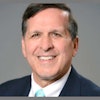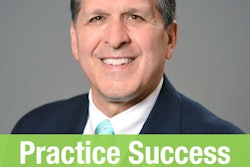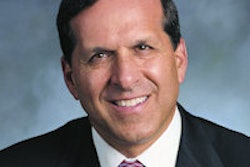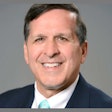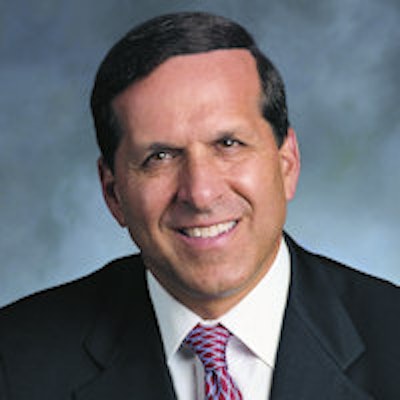
In his recently published book, Practice Turnaround: Succeeding in the New Dental Economy, Dr. Roger P. Levin uses actual case studies to illustrate how Levin Group has helped struggling dental practices regain control and accelerate growth. The following is an excerpt from one of these success stories.
Team vs. practice
Doctors often tend to believe that having a long-term team is synonymous with a highly successful practice. In many cases, practice performance may be either flat or even in early decline, but dentists are often more interested in espousing the excellence of their team rather than being concerned about their very real revenue challenges.
When times change, so must your practice
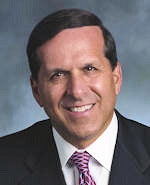 Roger P. Levin, DDS, founder and CEO of practice management consulting firm Levin Group.
Roger P. Levin, DDS, founder and CEO of practice management consulting firm Levin Group.Dr. Winston was a 62-year-old dentist whose practice had been producing just over $1 million a year before the recent recession. Within 30 months, his production had plummeted to less than $600,000 -- a loss of more than 40%. Money was getting tight for him.
His No. 1 concern about enrolling in a consulting program was whether he could even afford it. Given that his savings were insufficient and that he had not reduced any expenses in the practice, the real question was -- could he afford not to do it? Dr. Winston gradually began to realize that to build his practice back and have any chance of improving his savings, he would have to invest in it.
Dr. Winston had a nice office with reasonably modern equipment. While he did not invest in every new technology that came along, he was up-to-date and able to produce excellent dentistry. He cared about his patients and about his team. His statement to us was: "My team is like my family." This was probably why he had retained every team member even though his production had dropped exponentially.
When a Levin Group certified senior practice analyst looked at his practice, one of the first things determined was that three or four members of the team were no longer necessary. Staff salaries and other expenses were draining the practice. In fact, Dr. Winston had not taken any personal income in the past four months. While Dr. Winston was a wonderful individual, he was making bad business decisions that were jeopardizing his future.
Dr. Winston's failures included the following:
- Over the years, Dr. Winston had grown comfortable and complacent.
- He never developed the practice near its potential.
- Dr. Winston's staff was paid on average 20% more than other offices in the market.
- Dr. Winston failed to acknowledge obvious problems.
- He had never done any budgeting.
Making the tough choices
“In today's world, rebalancing of business expenses will be an ongoing issue.”
The next step was particularly difficult for Dr. Winston. He had to release two staff members and move all other staff members to compensation only during patient-dedicated office hours. While this was the right decision and the right balance of staffing for the practice, I do understand how difficult it can be. I believe that staff members should be treated extremely well. However, if the practice cannot sustain its current level of growth, compensating all staff in the same way is no longer possible. In today's world, rebalancing of business expenses will be an ongoing issue. The same harsh realities other businesses face must be faced by dental practices as well.
Nine months after creating a new budget and reallocating all expenses, Dr. Winston's income came within 70% of the peak he had reached four years earlier. Consequently, he had the opportunity to completely evaluate his current situation and make certain changes in the practice and his lifestyle.
Dr. Winston completed a comprehensive lifetime financial plan that also included an analysis of all identifiable major expenses for the future. Dr. Winston would be able to reach 91% of his income from his peak four years earlier. This was achieved by better expense management and improving efficiency.
Transforming the practice
 Practice Turnaround: Succeeding in the New Dental Economy by Dr. Roger P. Levin.
Practice Turnaround: Succeeding in the New Dental Economy by Dr. Roger P. Levin.Every possible opportunity for practice growth and expense savings was put into place. This included changing the patterns of buying supplies and materials, evaluation of necessary office hours, financial planning, and even tax accounting that allowed Dr. Winston to increase his income.
Dr. Winston gradually transitioned to a better financial position -- but this didn't happen easily. He had ignored all signs and symptoms of economic decline, feeling so obligated and responsible for his staff that he ended up with several months of no income after a four-year decline.
While his sense of loyalty was admirable, he put emotions and loyalty ahead of sound business principles and suffered as a result. He followed a risky course and did not have protocols in place to alert him that his situation was continually worsening and approaching a crisis level. Had he worked to build his practice as soon as he saw a decline, he may have avoided being forced to lay off two staff members and reduce the compensation of others.
Roger P. Levin, DDS, is the founder and CEO of Levin Group, the leading dental practice consulting firm in North America.
The digital version of Practice Turnaround: Succeeding in the New Dental Economy is now available online for just $59. You can also hear more case studies like this at one of Dr. Levin's upcoming seminars. Click here to see his full 2016 speaking schedule.
The comments and observations expressed herein do not necessarily reflect the opinions of DrBicuspid.com, nor should they be construed as an endorsement or admonishment of any particular idea, vendor, or organization.
Copyright © 2015, Levin Group, Inc. Reprinted with permission.


